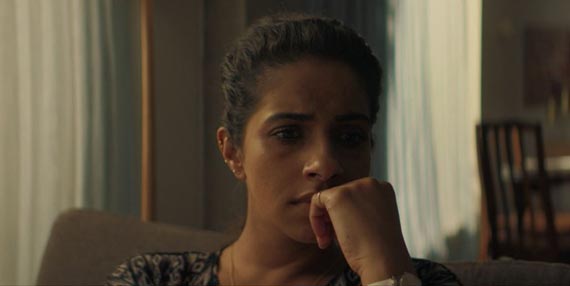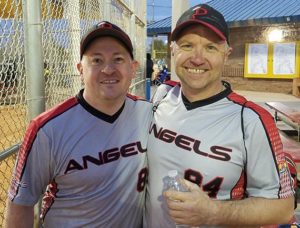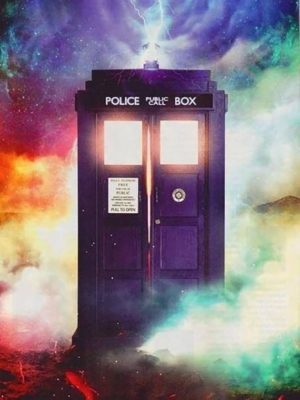“Yes, I Can Hear You!” – An Open Letter


“Can You Hear Me?” has started a cultural dialogue about mental health issues – – one on which I feel uniquely qualified to write. Below is an adapted excerpt of a letter I sent to a fellow Whovian who, after posting messages on social media describing his depressed mood, indicated an intention to harm himself. Please, take a few minutes to read.
Perhaps, like the Doctor in “Can You Hear Me?,” you struggle with knowing what to say when friends open up to you; here’s a blueprint.
Maybe, these are words you need to hear. If they are, please consider seeking the help you need. You are worth it!
. . . .
Hi,
Have I ever told you how I came to Doctor Who? Strangely, I saw Torchwood, first, and that led me to Who. After Elton, a Web site that reports on portrayals of queer men in the media, listed both Ianto Jones and Jack Harkness on their list of “best LGBTQ characters in sci-fi,” praising Torchwood with such veracity that, when I found a rerun on BBC America, a few months later, I made it a point to watch. The opening scene of “Everything Changes,” followed by the emotional wreckage of Ianto, in “Cyberwoman,” had me hooked. (Don’t ask me why BBC America aired episodes 1.1 and 1.4 back-to-back, without 1.2 or 1.3.) Finding out that many of Torchwood’s characters started on Doctor Who, I decided to give the parent show a try. “Rose” was as bad as I’d assumed, based on my impressions of classic-era Who, but “The End of the World” blew my mind, and was my point-of-no-return, as a Whovian. To this day, only “Listen” and “It Takes You Away” top that episode, as my favorites.
 Why am I telling you this? Look at how far Doctor Who – – and the real world it reflects – – has come in the last ten years! A decade ago, Torchwood was considered revolutionary because it portrayed five characters of varying sexualities – – none 100% straight. But, that was an “adult” show, on BBC Three. Ten years later, on parent show Doctor Who, we have characters like former companion Bill Potts, or Jake and Adam from “Praxeus,” who are openly gay, their sexualities affecting storylines, yet never portrayed in an exploitive manner. I’ve always said that great science fiction uses its fantastic premise to explore the human condition. Science fiction is great because it is inherently hopeful – – we can literally create the world we’d like to see. If our world has evolved this much, in the last ten years, think about what is to come, as Doctor Who crosses its 60th, 75th, and 100th anniversaries! I want you to be able to see the promise of Doctor Who’s premise realized in our world, but you have to actually be here to see it.
Why am I telling you this? Look at how far Doctor Who – – and the real world it reflects – – has come in the last ten years! A decade ago, Torchwood was considered revolutionary because it portrayed five characters of varying sexualities – – none 100% straight. But, that was an “adult” show, on BBC Three. Ten years later, on parent show Doctor Who, we have characters like former companion Bill Potts, or Jake and Adam from “Praxeus,” who are openly gay, their sexualities affecting storylines, yet never portrayed in an exploitive manner. I’ve always said that great science fiction uses its fantastic premise to explore the human condition. Science fiction is great because it is inherently hopeful – – we can literally create the world we’d like to see. If our world has evolved this much, in the last ten years, think about what is to come, as Doctor Who crosses its 60th, 75th, and 100th anniversaries! I want you to be able to see the promise of Doctor Who’s premise realized in our world, but you have to actually be here to see it.
 My favorite companion is Martha Jones. I love that, after two series of Rose assisting the Doctor, Martha single-handedly saves the world, not with violence, but with perseverance, ingenuity, and conviction. What a terrific message! I love that the series portrayed her as equally capable as the Doctor. Can you imagine him trusting his John Smith form, in “Human Nature”/“The Family of Blood,” to Rose, Donna, or Amy? It could only have been Martha. I love how Martha exits the TARDIS, at the end of Series 3 – – emotionally scarred from “the year that didn’t happen,” but proud that she survived, and a stronger woman for all that she accomplished. I hope that, the next time you feel ashamed of your scars, you remember that each marks an event that you survived, and that you can draw strength from your experience. When things get terrible, find your inner Martha Jones! Try to hold on for one more day, or one more hour, or one more minute – – whatever you think you can do. When that day/hour/minute is up, celebrate your victory, and then make the same promise to yourself, again.
My favorite companion is Martha Jones. I love that, after two series of Rose assisting the Doctor, Martha single-handedly saves the world, not with violence, but with perseverance, ingenuity, and conviction. What a terrific message! I love that the series portrayed her as equally capable as the Doctor. Can you imagine him trusting his John Smith form, in “Human Nature”/“The Family of Blood,” to Rose, Donna, or Amy? It could only have been Martha. I love how Martha exits the TARDIS, at the end of Series 3 – – emotionally scarred from “the year that didn’t happen,” but proud that she survived, and a stronger woman for all that she accomplished. I hope that, the next time you feel ashamed of your scars, you remember that each marks an event that you survived, and that you can draw strength from your experience. When things get terrible, find your inner Martha Jones! Try to hold on for one more day, or one more hour, or one more minute – – whatever you think you can do. When that day/hour/minute is up, celebrate your victory, and then make the same promise to yourself, again.
 While I won’t pretend to understand your situation, I can say that you are not alone in hurting the way that you do. Eighteen years ago, I was struggling with depression to the point that I was having suicidal thoughts. I was struggling to reconcile my Christian upbringing with my homosexuality, my emotionally distant father responded to my coming out by disowning me, I’d just broken up with a long-term boyfriend, and I was starting medical school. Things were really bad for about four years. Today, I am healthy, my dad and I are friends, I am successful in my career, and I am sharing my life with a wonderful man. There are still days that I struggle with my self-esteem, but, overall, I am happy. I know that it doesn’t seem like there is any hope that things will ever get better, but I promise you, they will. What worked for me was talking to a professional therapist and finding the right anti-depressant medication. (Which, if you do go on meds, be patient – – they take a while to reach full effectiveness, and your body will respond differently to the various types of drugs. If you experience horrible side effects, ask to switch to another medication. I tried, like, 30 meds, before I found the one that worked – – but when I found it, it saved my life.) Getting help may take some effort, but it is worth it! It is possible for you to feel joy.
While I won’t pretend to understand your situation, I can say that you are not alone in hurting the way that you do. Eighteen years ago, I was struggling with depression to the point that I was having suicidal thoughts. I was struggling to reconcile my Christian upbringing with my homosexuality, my emotionally distant father responded to my coming out by disowning me, I’d just broken up with a long-term boyfriend, and I was starting medical school. Things were really bad for about four years. Today, I am healthy, my dad and I are friends, I am successful in my career, and I am sharing my life with a wonderful man. There are still days that I struggle with my self-esteem, but, overall, I am happy. I know that it doesn’t seem like there is any hope that things will ever get better, but I promise you, they will. What worked for me was talking to a professional therapist and finding the right anti-depressant medication. (Which, if you do go on meds, be patient – – they take a while to reach full effectiveness, and your body will respond differently to the various types of drugs. If you experience horrible side effects, ask to switch to another medication. I tried, like, 30 meds, before I found the one that worked – – but when I found it, it saved my life.) Getting help may take some effort, but it is worth it! It is possible for you to feel joy.
If I can in any way help you, please contact me. You can find me on Twitter – – @ClintHassell. I may not be a “real life” friend, but I’ll certainly try to be a real friend. I promise to listen and to accept you.
I want to leave you with two quotes that have helped me a lot. They are both by F. Scott Fitzgerald, the author who wrote The Great Gatsby, which is widely considered to be the greatest American novel:
 “Never confuse a single defeat with a final defeat.”
“Never confuse a single defeat with a final defeat.”
“For what it’s worth, it’s never too late to be whoever you want to be. I hope you live a life you’re proud of, and if you find that you are not, I hope you have the courage to start all over again.”
Please, take care of yourself. You are worth fighting for.
Clint Hassell








